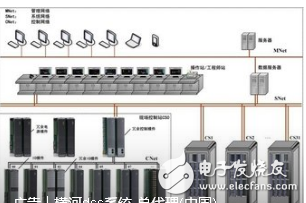Detailed Description of DCS System Operation and Maintenance Management
Lead
The operation and maintenance of thermal control equipment involves managing the inspection, operation, shutdown, and integrity of control systems. It also includes analyzing and addressing abnormalities. The DCS system must follow conventional thermal control management practices, including spare parts management. Customized operation and maintenance methods should be developed based on the unique characteristics of the DCS.
For historical data stations, it is essential to maintain an accurate and well-organized database for efficient accident analysis. Regular checks of the hard disk are necessary to avoid full storage, which could prevent new data from being recorded. When shutting down a workstation, always execute the proper shutdown procedure before cutting power. Direct power cycling is strictly prohibited. Data highways should be protected from physical damage, and their connections should not be tampered with to avoid disconnections. When wiring, ensure that cables are separated from high-voltage lines, and use protective conduits to minimize interference. DCS spare parts must be stored according to manufacturer guidelines and inspected regularly. Before using any spare parts, they should be functionally tested to avoid potential issues.
Strengthen Software Management
Power plants often focus more on hardware maintenance than software management for DCS systems. However, without proper software management, risks such as unauthorized modifications or unbacked changes can threaten system stability. Both software and hardware should be managed equally, with standardized procedures for configuration, updates, and upgrades. All software changes must go through formal approval processes, and backups must be made before any modification. For operator station keyboards, strict access controls should be in place to prevent misuse. Each workstation’s software version must be consistent, and no untested software should be installed on the running DCS system. Effective anti-virus measures must be implemented to protect against threats.
(1) Software Backup and Management
DCS software includes both system software and configuration databases. System software enables reinstallation, while the configuration database supports process monitoring. Any changes to the software must be documented and backed up. If a failure occurs, timely recovery is possible. For systems connected to MIS or other networks, communication software plays a critical role in ensuring security. To prevent interference from external systems, data transmission should be unidirectional, and all downloads must be verified and approved.
(2) Software Inspection and Functional Testing
Regular checks of the operating system, disk space, user permissions, and network settings are crucial. Application software must be tested for functionality, and database integrity should be ensured. Reports, historical data retrieval, and performance calculations must be validated to meet operational standards. Workstation functions like online configuration, data display, and alarm handling should be thoroughly tested to ensure reliability and accuracy.
(3) Copying, Checking, Upgrading, and Protecting Software
Software should be copied annually, and multiple backups should be maintained. Upgrades must be approved and executed carefully, following manufacturer guidelines. Unauthorized software installation is strictly prohibited. Access to engineer workstations and operator stations should be controlled to prevent accidental or malicious changes.
Two. DCS Operation and Maintenance Content
(1) Daily and Regular Maintenance Measures
During normal operations, electronic equipment rooms should avoid sources of electromagnetic interference, such as mobile phones. Field devices should be shielded to reduce noise. Regular inspections are required to monitor DCS status and identify issues early. Engineers should check system logs daily, ensuring that environmental conditions, module status, and alarms are within acceptable limits.
(2) Spare Parts Management
DL/T774-2001 provides detailed guidelines for DCS spare parts. Modules must be stored in anti-static bags, and environmental conditions must meet manufacturer specifications. Regular inspections should verify the condition of each part, including communication ports, I/O channels, and redundancy testing. Before deployment, modules must be checked for correct configuration and functionality. Proper documentation and verification are essential to ensure reliability during system failures.

2.54mm Pitch
2.54mm Pitch
HuiZhou Antenk Electronics Co., LTD , https://www.atkconn.com